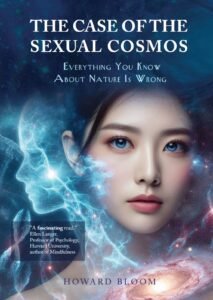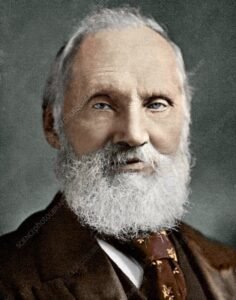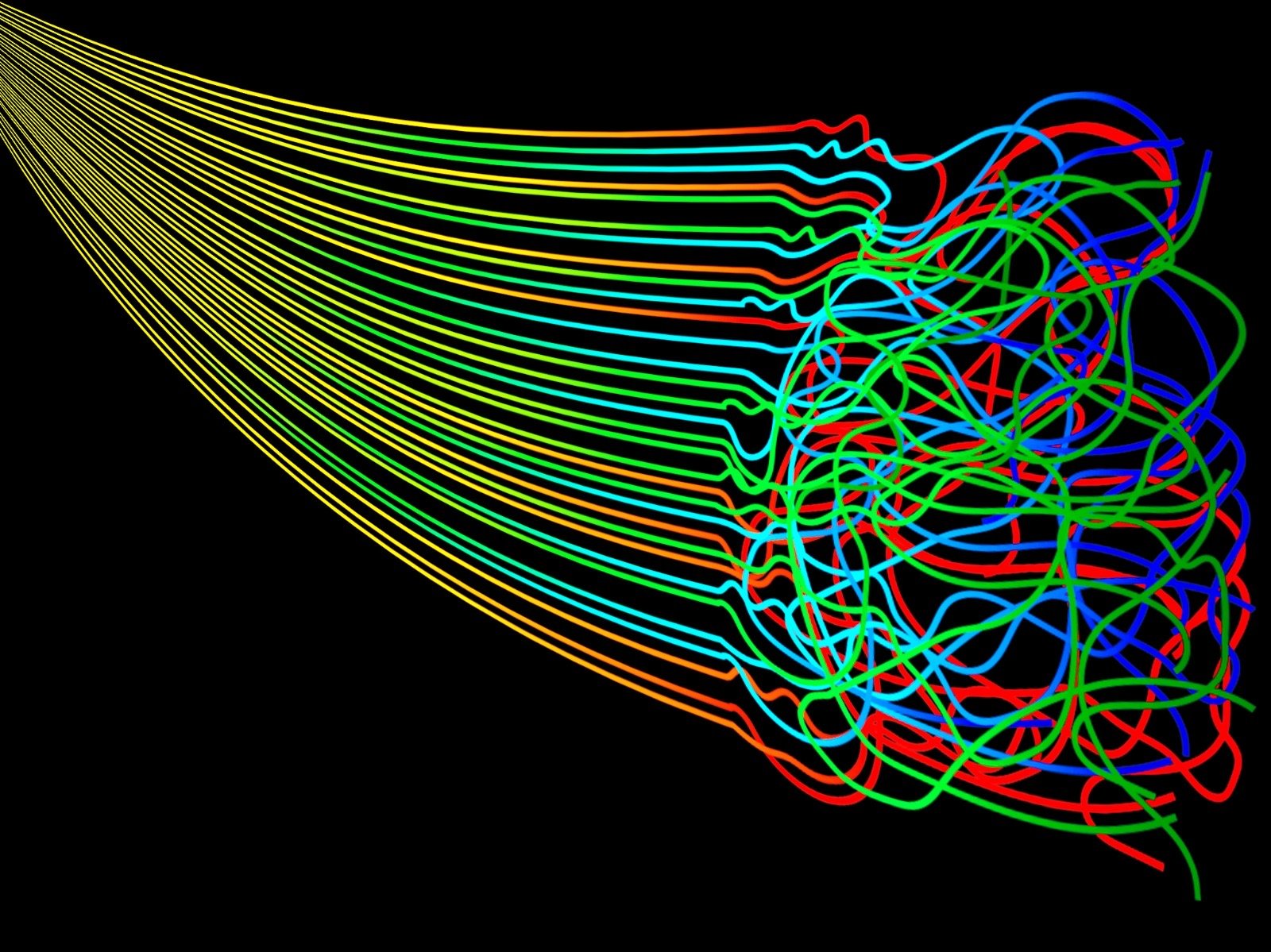In a new article for the Journal of Space Philosophy, disruptive scientific thinker Howard Bloom, the man Britain’s Channel4 TV calls the Einstein, Darwin, Newton, and Freud of the 21st century, proclaims something daring: that the Second Law of Thermodynamics is wrong. Yes, that the concept of entropy is in error.
Entropy and the Second Law just happen to be science’s holiest ideas. There have been millions of references to entropy in the scientific literature since 1865, when the idea was first put forth. Yes, millions. The journal Entropy alone has published 10,735 articles with 132,000 citations.

But Bloom takes his challenge farther. He proposes a concept to replace The Second Law of Thermodynamics: The First Law of Flamboyance.
The Second Law of Thermodynamics says the universe is constantly falling apart, constantly lapsing into chaos. Bloom says that the universe is doing the opposite. It is constantly falling together. Constantly generating astonishments. In startling new ways.
Bloom tells the story of how in 1852 at the University of Glasgow in Scotland and in 1865 at the University of Berlin in the kingdom of Prussia thermodynamics’ darkly pessimistic view of the world came to be. Thanks to a theoretical fascination by several college professors with the hot new technology of the time, the steam engine.

In 1852, William Thomson, a professor of Natural History at the University of Glasgow, asked in his paper “On a Universal Tendency in Nature to the Dissipation of Mechanical Energy” about “the loss of power experienced by steam in rushing through narrow steam-pipes.” He said “for the best steam engines…at least three-fourths of their work…is utterly wasted.” Wasted in friction. Then he took a huge leap and generalized this to the entire “material world.”
He concluded his paper with a prediction, “Within a finite period of time past, the earth must have been, and within a finite period of time to come the earth must again be, unfit for the habitation of man.” All because the earth, like a steam engine, turns energy into waste. All because of the constant breakdown of useful energy into disorganized exhaust. Thomson proclaimed that “the dissipation of mechanical energy” will make the earth uninhabitable. And plants, animals, and humankind will be out of luck. They will die out.
Two years later, in 1854, Thomson’s colleague at the University of Glasgow, William John Macquorn Rankine, would call this prediction of the earth’s collapse “heat death.” And the concept of heat death is vividly alive in science today.
William Thomson would eventually gain such fame that Queen Victoria would name him “Lord Kelvin.” And heat death would not be Kelvin’s only prediction.

In the book from which Bloom’s Journal of Space Philosophy article was derived, The Case of the Sexual Cosmos: Everything You Know About Nature Is Wrong, Bloom lays out a second of Lord Kelvin’s thermodynamic predictions:
Kelvin mustered all the sciences he could, from the newly-discovered melting temperatures of slate, sandstone, garnet and granite to the sophisticated equations of Fourier and to the discoveries of a new science he named thermodynamics to predict the age of the earth. From that prediction, Kelvin concluded that Charles Darwin’s theory of evolution couldn’t possibly be right.
Darwin’s theory said that evolution took place slowly over massive amounts of time. Kelvin said that his calculations demonstrated something conclusive: the earth had not been around long enough to allow for the Darwinian process to take place.

Kelvin, the founder of thermodynamics, believed he had disproven Darwinism. Totally. He had proved that the earth was between 20 and 400 million years old. Not enough time for evolution’s gradualism. But despite the brilliance of his equations, Kelvin was off by a staggering amount: more than four billion years. Today we believe that the earth is 4.5 billion years old.
Darwin’s observational science got it right. The math of thermodynamics got it wrong.
Bloom’s article points out that, “In science, if a theory makes false predictions it has to be altered until it gets its forecasts right. Or it has to be tossed away.” That’s true of the cosmic claims of the Second Law of Thermodynamics.

Explains the new Journal of Space Philosophy article:
Twentieth century experts like Harvard evolutionary biologist Stephen Jay Gould did everything they could to prove the concept of progress wrong. But this is a universe that has progressed
- from a nothing to a big bang,
- from a big bang to the birth of quarks,
- from quarks to protons and neutrons,
- from protons and neutrons to atoms.
- from atoms to galaxies, planets, and molecules.
- And from molecules to life … to you and me.
Nature’s obsession with progress is real.
As the new article puts it:
Even the dust of space has done the very opposite of what Lord Kelvin’s heat death predicted. Instead of falling apart in a random whizzle, instead of tumbling into a formless phmumph of entropy, instead of spreading out in a uniform mist like the molecules of a sugar cube dissolved in a glass of water on the table in front of you, space dust has come together in clouds, then galaxies. Then in stars, planets, moons, asteroids and solar systems. Every swirl of a galaxy and ring-around-the-rosy of planets circling a sun is a victory dance over entropy. Every swirl shuns the lapse into uselessness. Every swirl defies the Second Law of Thermodynamics.

Concludes the article:
This is not a cosmos obeying the Second Law of Thermodynamics. It is a cosmos following what The Case of the Sexual Cosmos calls the First Law of Flamboyance. It is a cosmos constantly churning out whole new kinds of social agglomerations. Agglomerations with radically new properties. Agglomerations that change the very nature of this universe. This is a cosmos constantly creating material miracles and supersized surprises.
This is a cosmos constantly upgrading itself, constantly reinventing itself.
In other words, the Second Law of Thermodynamics is wrong.
The official website for Howard Bloom may be found at https://www.howardbloom.net

